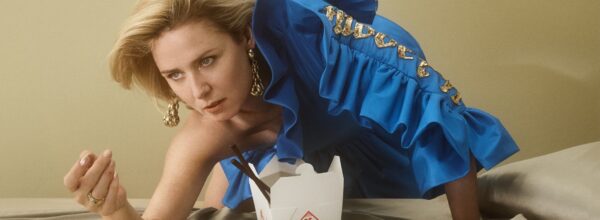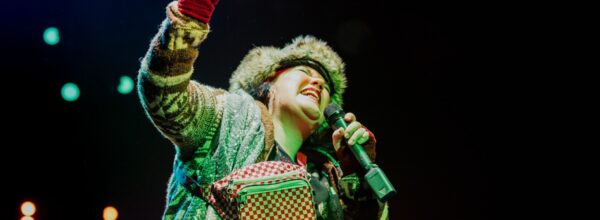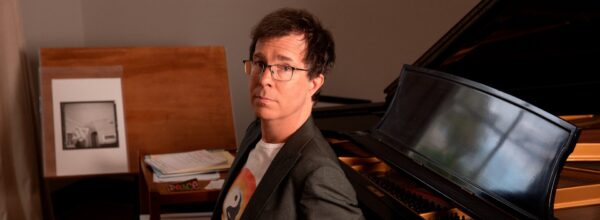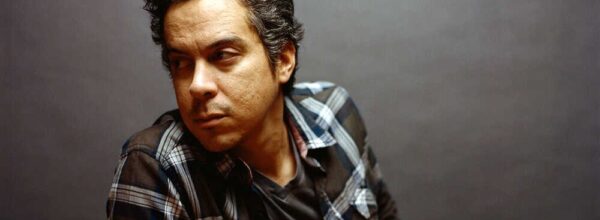![]()
11 March 2015
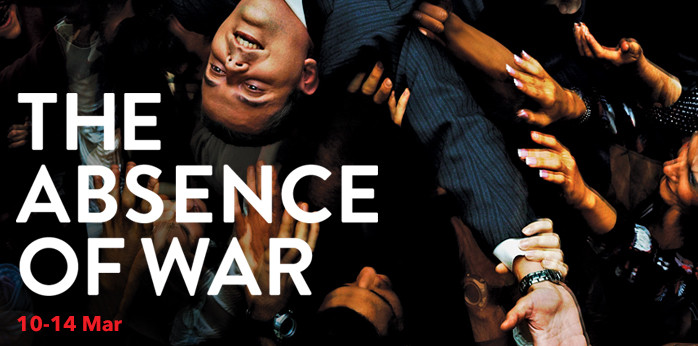
Ahead of this year’s general election, Headlong, Rose Kingston and Sheffield Theatres have revived David Hare’s ‘The Absence of War’; a play that now seems like a prescient warning of the convergence of British politics’ two major parties, the increasing public relations focus on carefully controlled public images and the resultant bleaching out of authenticity to assure votes. First appearing at the National Theatre in 1993, the play is largely inspired by Neil Kinnock’s failed election bid the previous year and the writer’s frustration at Labour’s inability to oust the Tory Party.
Before the show begins, the audience hears news of Reece Dinsdale’s inability to perform as lead character George Jones due to illness and that Trevor Fox has been called in as a last minute replacement. With “very little rehearsal”, the crowd is told that Fox will be holding his script throughout and, while he fights the tide admirably enough, one is already accepting of the fact that this will not quite be an ‘Absence of War’ of fully realised potential.
Opening with a scene of a remembrance service at the Cenotaph, the play takes its title from the supposition that those who have not fought in a war instead acquire personal worth through “keeping busy” – and thus the frenzied circus of the politician’s existence. We are then transported, through the excellent set, light and sound designs, to a replication of Prime Minister’s Questions; utilising television screens with footage from parliament and recreating the jeering bustle of the House of Commons, the scene is effectively brought to life.
“The head is cut off but the chicken keeps running” barks Jones to the approving taunts of his party colleagues. However, it is a comment that he soon regrets and this is the first point where the play raises the issue of subjugating personality as a safer approach to gleaning votes; as with Kinnock’s growing conviction that Labour’s re-election was dependent on his making a pact with respectability, the privately affable and charismatic Jones is encouraged by his staff to project a subdued self; we are left with the political reality that soundbites from our leaders are specious without substance…and also that Kinnock really must’ve smothered his personality in eventually losing out to Mr Bean-alike, charisma vacuum John Major in ’92.
When Tory rival Charles Kendrick calls an unexpected snap election, Jones and his staff scramble into action but his shortcomings become ever more apparent; he is subjected to public mistrust on the issue of an ailing economy, internecine struggles with his staff culminate with him lashing out at his cynical political advisor and he is involved in a power struggle with his shadow chancellor Malcolm who deems Jones “insufficiently ruthless” and is the target of the delightful summary of political subterfuge: “He’s far too disloyal to be openly disloyal”.
While Fox’s dependence on his script goes largely unnoticed preceding the interval, the growing prominence of his role requires it conspicuously to be used as a crutch during the second half. Though of course no fault of his own, the pivotal scenes of Jones’ grilling at the hands of a hectoring television host and his fierce confrontation with Malcolm later on feel somewhat bereft; he sounds broken, but unconvincingly so, during his televisual hammering and the head to head with his shadow chancellor is robbed of its potential fire with lines having to be delivered from off the page.
Elsewhere, the play takes great strength from the look of its set pieces; all scenes from the fictional TV show The Nation Decides, the outside of Number 10 to the Labour Party Conference are all evoked convincingly and the inclusion of real time camera footage displayed on multiple televisions around the stage adds a touch of class. There are also neat strokes of nostalgia as with the display of Ceefax and a brief mention of lunchtime television show Pebble Mill.
‘The Absence of War’ is a consistently entertaining work, hampered only by the unfortunate absence of its leading man. Twenty two years after its premiere performance, Hare’s play takes on a new light in the context of the modern political landscape. Born out of a journalistic account of frustration at pre New Labour impotence in disposing of their Conservative rivals, the play now reads as a comment on the problems within today’s political climate; “Let’s all just be Tories!”, George Jones cries after his disastrous Election Day speech – from satire to actual Labour policy is little over two decades.
Scott Hammond
Read our interview with Absence of War’s Cyril Nri.




